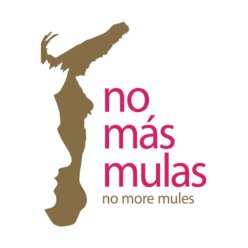From a young age, I was separated from my parents, who had migrated from mainland China a few months before my birth. They were preoccupied with work, so when I was six months old, they sent me back to mainland China to be cared for by my aunt. This arrangement lasted until I was three years old and ready to start school in Hong Kong. Before this time, I had rarely seen my parents and we were estranged.
We lived in a tiny room but despite the limited space, we were content. Later, thanks to a fellow villager, my dad secured employment at a seafood shop, and we relocated. We lived on the first floor above the seafood shop.
My parents enjoyed a good relationship then. We weren’t wealthy, but we had enough for our needs, and life was pleasant. After a couple of years, they managed to buy our very own flat. My father started a successful business in the seafood industry and even opened a processing factory across the border.
The business environment on the mainland was challenging at the time, so my father invited my uncles and cousins to join him. However, once they started making money, they sought relationships with other women.
As a fourth grader, I ate takeout every day, and my parents visited about once or twice a week. I remember feeling devastated when my mother didn’t come back for my football championship celebration, as she promised. They tried to compensate for their absence with toys, but the loneliness was unbearable.
Consequently, my mother returned to work on the mainland, leaving me alone in Hong Kong. As a fourth grader, I ate takeout every day, and my parents visited about once or twice a week. I remember feeling devastated when my mother didn’t come back for my football championship celebration, as she promised. They tried to compensate for their absence with toys, but the loneliness was unbearable. I began spending more time at the football field, avoiding the empty house. It was during this period that I started associating with a triad and getting into fights. I was influenced by my peers and out of curiosity, I began experimenting with drugs. The first time was when I drank cough syrup with my classmates at the football field, I was around 12 or 13 years old. I didn’t feel much except for a bit of drowsiness. I wasn’t interested at the time.
After several years, my father’s life began to fall apart. He developed a gambling addiction, and people exploited his business. In the end, he accrued debt in the hundreds of thousands of dollars and vanished. My mother had the sole responsibility of repaying his debts. I recall being around 14 when debt collectors would visit us weekly. Being young, it was a frightening experience.
I confided in friends from the football field, who introduced me to the leader of a local gang for protection. After providing a small gift to the gang leader, I called him and his friends when the debt collectors returned. More than 20 of them showed up at my home, leading to an intense confrontation on the rooftop. After that, they ensured the debt collectors ceased their visits.
Following that incident, I spent a lot of time with these individuals and found myself participating in illicit activities and conflicts.
Teenage frenzy
Around the age of 15 or 16, I began attending discos with several classmates. Initially, I abstained from drugs, observing their dizzying effects and deeming them unappealing. Ecstasy, ketamine, and ice were commonly used during these outings.
My first encounter with drugs was a blur. I remember going to the restroom to use ketamine, not anticipating what would follow. Time seemed to dilate, and I lost control.
However, during a friend’s birthday celebration, a group of girls joined us. A friend inquired if I planned to use drugs, to which I responded negatively. But one of the girls suggested I try, claiming it would be an exciting shared experience. My friend goaded me, challenging my daring. Between the peer pressure and a desire to impress, a pitfall many young individuals fall into, I agreed to try all three drugs simultaneously.
My first encounter with drugs was a blur. I remember going to the restroom to use ketamine, not anticipating what would follow. Time seemed to dilate, and I lost control. The police raided the disco, and we all had drugs on us. My more experienced friends led me to escape from the back door. By the time I checked the clock, it was around four or five in the morning.
Before my third year of junior high, my grades were decent, placing me around 40th out of over 200 students. My mother hoped for me to continue my studies through Form 5, leading me to graduate from high school. During this period, I held a part-time job at an internet cafe while I studied. After graduation, I entered the real estate industry where worked successfully for 14 years.
Life on high
When I began earning money, I started frequenting mainland China with my senior colleagues and became involved with drugs around the age of 21. I spent nearly 20 nights a month at discos, managing to go to work with only four to five hours of sleep. As I started socializing more and meeting girls, my drug use became a regular part of my outings. Gradually, I transitioned from being a follower to leading others into drug addiction. Between the years 2003 to 2004, as discos in Hong Kong began to lose their appeal, we shifted our drug use from public venues to our homes. Initially, I felt uncomfortable about using drugs at home, but seeing the girls from the discos doing the same, I relented. I began using drugs at home daily and eventually added cocaine to the mix.
At the time, I was earning a good income of around $50-60k per month. Initially, my drug expenses were about $10k a month, but with the introduction of cocaine into my life, nearly all of my income went toward drugs. I used to blame my girlfriends for my addiction, but that was just an excuse. My drug usage increased over time, affecting my work and daily life. I’d wake up each day with an urge to use drugs, eventually losing control completely.
Downfall
I first attempted to quit drugs in 2014, but my efforts were inconsistent. In mid-2020, during a dispute with my wife, I used drugs at home. She was aware of my addiction, but because we had a young child (barely over a year old) she was concerned I would pose a risk to our child, so she reported me to the police, resulting in my arrest. Subsequently, I participated in a 12-month drug rehabilitation program at a Christian center. After completing the program, I remained drug-free for a short period. However, following another disagreement with my wife, I relapsed and resumed drug use.
At that time, I had a job that paid $700 a day. However, I was spending $650 daily on drugs, saving only $50 for the next day’s work. I found it impossible to face myself, my wife, or my mother. My mom was hospitalized with lung cancer in April 2023, but I didn’t know how to help her. I put on a facade of sobriety in front of her, but in secret, I continued my drug use.
After her passing, my unhappiness increased. I used drugs all day and even contemplated suicide. After just a month, I depleted all my funds, leaving only $200 in my wallet. Driven by a desire for more drugs, I stole a phone from a coworker. He had left his phone unattended on the table. Overcome by greed, I seized it, planning to sell it for drug money. However, I ended up returning the phone, but not before my colleague reported me to the police, and I was arrested. I bear no grudge against him. If it weren’t for that episode, I may have continued my drug use in ignorance.
Before my mother passed away, she implored me to quit drugs and stop lying to her; I failed to meet her request. I truly let her down, and for that, I am profoundly sorry. She was the only one who believed in me and supported me when no one else would. Her love was unconditional, and I miss her dearly. Now, as a prisoner, I’m unable to fulfill my filial duty of arranging her funeral and enabling her to rest in peace. I acknowledge my failure as a son and continue to berate myself for my actions.
Wake-up call
My current stint in prison has been a real wake-up call, forcing me to question my behavior. Although I am currently physically confined, I know that true change must come from within. I need to change my mindset, my thoughts, and learn to be patient, to wait, and to pray and draw close to God.
Before my incarceration, I was in the process of divorcing my wife, but there was a hint of improvement in our relationship. When I informed her about the charges against me, her disappointment was clear. I’ve written numerous letters to her. She accepts them but never responds. I didn’t want my son to see me in this state and feared I would break down in tears at their sight, so I asked them not to visit. Perhaps, they misunderstood and thought I didn’t want to see them. I deeply regret this, as my actions have caused my loved ones, including my father, undue sadness.
I realize that life only offers a limited number of chances for redemption. Upon release, I aim to repair my relationship with my wife and take care of her for the rest of our lives. I am determined to become a protective figure for my family and promise not to harm them again. I also intend to learn how to be a better father and husband.
I now understand that overcoming addiction is a lifelong journey, not just a one-time effort. I anticipate facing setbacks and challenges in recovery but I believe that God will guide and protect me through the support of those around me.
I also hope that every brother and sister who has gone through or is undergoing drug rehabilitation does not forget about their initial intentions. Think about why you decided to quit drugs. Drug addiction affects three generations, so don’t disappoint and hurt the people around you who trust and love you because once you miss certain opportunities, they are gone forever. Learn to cherish the people in front of you and avoid a lifetime of regret.
Note: This story is an amalgam of two letters originally written in Chinese. It has been translated and edited to improve readability. Switch language to read the original.

